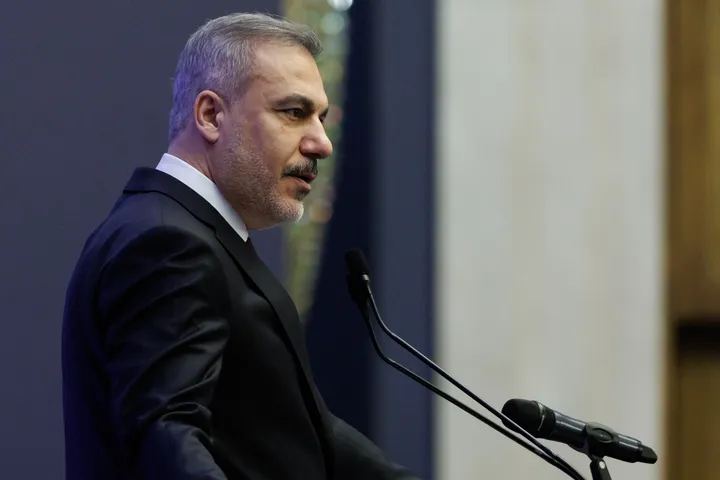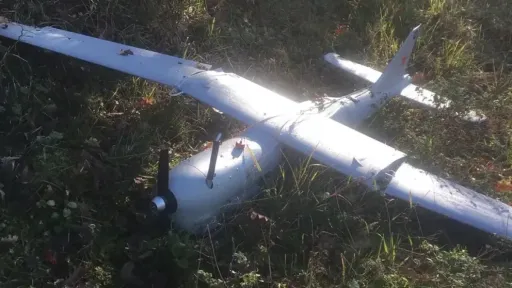Several of Türkiye’s academic institutions have now joined the growing global academic boycott of Israel through official declarations. That includes pioneering Turkish institutions like the Istanbul Technical University and Bogazici University’s Rectorate, both of which have recently put forth statements declaring they will academically boycott Israel.
The statements are important not only in putting pressure on the Israeli State but also in courageously calling out Israel’s actions in the besieged Gaza as what they are — massacres, occupation and atrocities amounting to genocide.
Amid confusing and biased claims, in a field where most Western officials are on Israel’s side, they contribute to defining the boycott process and taking action on it.
For instance, Bogazici University, in its statement, described the bombing of Al Azhar University in Gaza as “being on the brink of becoming a genocide in the 21st century.”
Until a lasting ceasefire is established, these institutions have declared that they will refrain from any academic collaboration with their Israeli counterparts.
Istanbul Technical University resonated with Bogazici University’s call in a different way, saying, “We refuse to be part of the crimes committed by the Israeli State.”
So how can academia be part of the Israeli State’s crimes? How is academic boycott an important means to call for action against Israel? What can it achieve? Let’s take a look.
Dahiya Doctrine, a military strategy produced by an Israeli university and applied in Gaza
The main reason to call for the boycott against Israeli universities is their ties with Israel’s defence industry, developing its military equipment and strategies.
Referring to the Dahiya Doctrine which is a military doctrine, saying your enemy can be forced into submission by inflicting asymmetric, large-scale violence on urban areas, Christian Henderson, professor of Political Economy at Leiden University, tells TRT World that this doctrine was developed by an institution within Tel Aviv University.
“That doctrine explains what Israel did in Beirut in 2006,” he says, adding, “The scale of what is happening in Gaza now is much worse.”
Some buildings at the Hebrew University, which hosts an Israeli military base on its campus, are located in lands confiscated from the occupied Palestinian territories.
Meanwhile, Bar-Ilan University had been part of a joint research project with the Israeli Army to develop AI for unmanned combat vehicles.
Blurring the civilian and military elements in academia, Technion University supports the R&D of the Israeli military.
“The universities are just one way through which the Israeli State projects its image and soft power on a global basis,” Henderson says.
These are just a few examples, showing how connected the Israeli Army is to its nation’s research institutions.
Institutions, not the people, are the target of the campaign
As the debates against academic boycotts point out so-called dissenting voices among Israeli academia, Henderson emphasises that this boycott attempts to target institutions that are complicit with the occupation and apartheid system that is imposed on Palestinians, not the individuals within them.
This process can also lead dissenting Israeli voices, if any, to put pressure on their own governments, Selcuk Aydin, lecturer of Politics at Bogazici University, tells TRT World.
Derek Doherty, Professor of Immunology at Trinity College, Dublin, echoes a similar view, telling TRT World that in the end, “cutting these ties might encourage Israeli academics to enter in conversation with their European counterparts and take a stand against the policies of their government and condemn the genocide against Palestinians.”
It’s ‘up to civil society groups’, as the West remains silent
As governments in Western Europe and the US are really unwilling to hold Israel accountable for its behaviour, the process shows, “it is up to civil society groups to find ways to hold Israel accountable. The boycott is one-way academia can do that,” Henderson says.
Referring to the West’s inaction, Patrick Bresnihan, Professor of Geography at Maynooth University, tells TRT World, “While the Irish government has criticised the Israeli response and called for a ceasefire, it hasn’t taken any concrete action to put pressure on Israel.”
“Irish universities have done even less — failing to make any clear, public statements,” he adds, even as academics working in these institutions have started a huge letter campaign in favour of an academic boycott.
The reality that he is uncomfortable with, is that the US and EU continue to actively support Israel while it carries out terrible attacks on Gaza, destroying even universities and schools there.
So this led him to take some ‘small action’ — as he calls these — in his workplace, to force more action and to make it clear that academics in Ireland support Palestine.
Aiming to get an institutional reaction
Even before influencing their respective governments, the academics aim to resonate with the institutions they work for first.
“It would be powerful if the president of the University made a public statement denouncing the actions of Israel as war crimes, and clearly standing with Palestine. We saw such statements in the Ukraine-Russia conflict. So there is clear inconsistency — where are the Palestinian flags on campus? Where are the strong statements taking sides with the vulnerable and oppressed?” Bresnihan asks.
He recalls that during the Ukraine-Russia conflict, the universities did not stay quiet and took sides in a concrete form, including the boycott of Russian universities.
The participation of the institutions in the boycott movement elevates the impact of the boycott to a different level, Selcuk Aydin says.
The Turkish academic boycott differs in that the presidents of two Turkish universities have already publicly declared their support for the academic boycott.
Academy has a special place
Although a boycott is an action that fits any workplace, academia has a special position, emphasising academics. They are institutions having a high profile, supposed to be places of critical thinking and knowledge.
“If they were to come out with strong pro-Palestine statements, then it would influence the wider public discourse, and ultimately serve to put more pressure on the government to reflect what the Irish people believe and want,” Bresnihan says.
Also, the position of the person who makes a boycott call adds value to the action, says Gulsen Kaya Osmanbasoglu, professor of Politics at the Social Science University of Ankara.
However, Bresnihan emphasises, “It is, in any case, important to take a position,” whichever workplace or title you may be associated with.
























